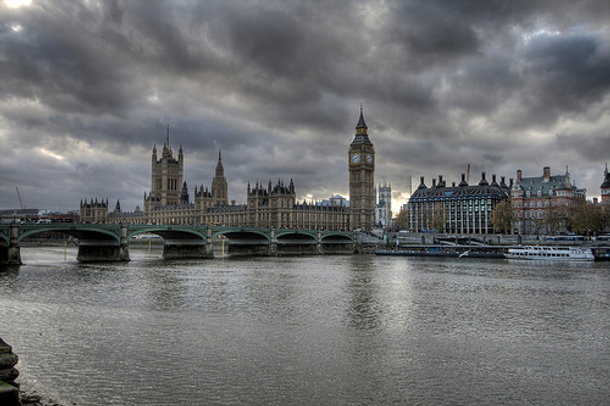IT spending cuts in government will 'last forever'

Whitehall spending on tech will never return to peak levels, experts warn...
Government spending on IT services will not bounce back after the present Whitehall spending squeeze is over, analysts have warned.
Logica, which has contracts with 55 government departments and agencies, is the latest tech supplier to confirm it has agreed to cut its charges for IT services to government, as part of ongoing negotiations to reduce Whitehall's IT bill. Talks are taking place between the Cabinet Office minister Francis Maude and government's 19 biggest tech suppliers.
Logica is the third supplier to agree to cuts, and the announcement comes days after the government revealed it was reviewing whether 419 new IT projects should proceed.
Richard Holway, chairman of analyst house TechMarketView, said the squeeze was a correction to a history of government paying over the odds for its tech. He added that levels of spending in the public sector were unlikely ever to recover to pre-cut levels.
Holway said between 2000 and 2009 the public sector had increased the amount it spent on software and IT services by an average of seven per cent each year, while in the same period the private sector had reduced its equivalent spend by one per cent per year.

Government IT spending is unlikely to recover to pre-cut levels following the present tech spending squeeze, say analysts
( Photo credit: Paul Kehrer via Flickr under the following Creative Commons Licence)
"There is a lot of correction that needs to go on and I don't think it's a short-term thing. I think it is forever," he said.
"IT is a deflationary industry and I do not see any reason why that should change. You should get more and more for less and less and cloud computing is just going to accelerate that."
TechMarketView forecasts that the public sector will reduce what it spends on IT, estimated to be about £16bn each year, by 10 per cent between 2009 and 2012, while central government departments will cut their spend by 27 per cent during the same period.
Ovum senior analyst Sarah Burnett said in the short term suppliers will be cutting back on IT services to government.
"The priority for the government at the moment will be reducing costs of existing contracts. They are very much scaling back, getting rid of the nice-to-haves and going back to the core requirements," she said, adding that government negotiators needed to be careful that suppliers did not cut services too deeply to achieve cost savings.
In the long term the government will be looking for suppliers to transform...
... the way IT services are delivered to lower the cost of provision, for instance, by setting up shared service centres for back-office functions such as HR and finance, she said.
She added that tech suppliers, and not government, were likely to fund the new tech infrastructure needed for these longer term transformations to service delivery.
"It will require the big suppliers with deep pockets to invest in the type of tech platforms to enable these type of services to be rolled out," she said.
Burnett said the negotiations could see suppliers moving to an outcome-based based payment model, where the supplier earns a certain percentage of the total amount they are able to cut from the cost of delivering a service.
Craig Boundy, UK CEO for Logica, said his company had agreed to make "efficiency savings" across its public sector contracts and some of those savings would be realised immediately.
"we've="" managed="" to="" reach="" agreement="" with="" the="" cabinet="" office="" and="" range="" of="" other="" departments="" that="" we="" work="" with,"="" he="" said.<="" p="">"They are changes in scope, changes in service levels and changes in the way we work together," said Boundy. As an example of the type of change that has been agreed, he said, "It might be that a service that's operated 24/7 is changing to working time only because it's only used during working hours."
When asked if the savings would results in a reduction of the quality of service provided to government, Boundy said, "Quality is relevant to individual needs, so no. I think this is about making sure we deliver to the needs."
He said the next stage would be to agree with the government how it could transform the way services are delivered to make them more efficient - with savings delivered through methods such as automation of services and economies of scale achieved through shared service centres.